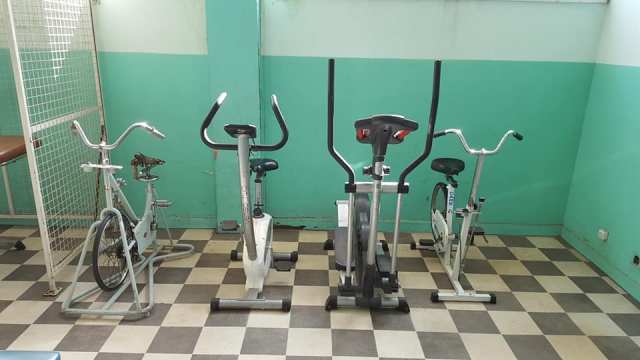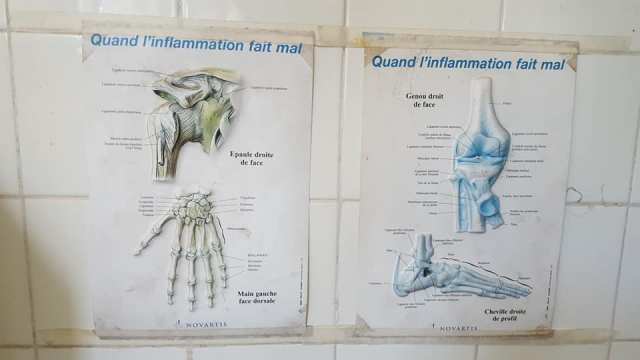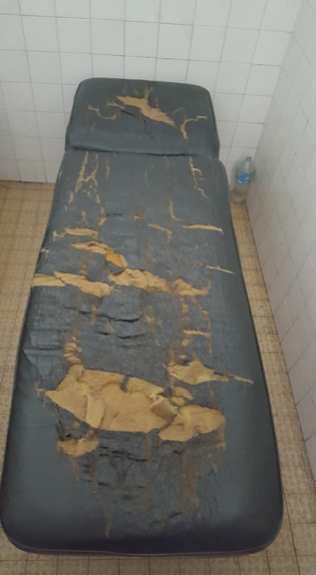I arrived in Antananarivo, or Tana, the capital City of Madagascar on Sunday 3rd March 2019. After a year of planning, preparation and fundraising it feels almost surreal to be here. I thought I would give an update on how the first week has gone, and will aim to give regular updates during my three months in Madagascar.
Accommodation: Centre Social Anyma
I am here alongside my boyfriend Tom, and my friend and work colleague Diana. We are staying in Centre Social Anyma. The centre is an NGO set up between the Hospital and the Chaplaincy to support the families of patients in hospital. The centre offers free accommodation to families with relatives in hospital, whilst medical volunteers pay a small fee for accommodation which contributes to the running of the centre.
The centre is clean, open, and friendly, with security staff manning the gate to the centre 24 hours per day. Each room is equipped with an en-suite bathroom that even has a hot water shower! (Having spent a month in Tanzania previously where we used buckets of cold water mixed with hot water from kettles to shower I was most impressed by this!) There is also a kitchen and dining area where volunteers can cook and socialise.



Physiotherapy work
The hospital where we have been working is Hospital Joseph Ravoahangy Andrianavalona (HJRA). HJRA is the largest hospital in Madagascar. We arrived on day 1 to meet the Physiotherapists in the rehabilitation department. We are planning to observe their work and offer support, service development, or teachings on specific areas they request help with. We have not planned any teaching materials in advance as we wanted to wait and see what would be most useful and relevant to the Physios when we arrived.
I was amazed and very impressed with the facilities of the rehabilitation department. There are 18 Physiotherapists in total at the hospital, with a Chief Physiotherapist overseeing the department. The department has a gym and cubicles where patients can be treated. The Physiotherapists are keen to learn, teach, and work with us, all whilst practising their English! I have observed the treatment of a wide range of conditions so far including, spinal cord injury, facial palsy, Parkinson’s disease, cerebral palsy, sciatica, and a variety of different fractures.
I have also been to observe the treatment of a patient who had suffered a stroke on the neurological inpatient ward. This was the biggest surprise to me.
Each room contains a mixture of paediatric and adult patients, with family members providing daily care such as feeding, washing, and positioning the patient. The patient’s family members must also purchase any equipment needed such as medication, bandages, infusions etc. On arrival, my first reaction was to draw the curtains around the bed space before assessing and treating the patient, however there are no such luxuries such as curtains afforded here. The physiotherapist I was observing then proceeded to use percussion on the chest as a means of listening to the patient’s breathing. Stethoscopes and auscultation are another luxury I have taken for granted at home. The physiotherapist then used percussion and vibrations to clear secretions, with family members then lifting the patient forward to sit upright. Following the treatment, the patient’s family handed the equivalent of £1.30 to the physiotherapist as payment. I found the handing over of money almost shocking and unexpected, however this is standard practice in many low and middle income countries.
Following the treatment session on the ward the physiotherapist I was shadowing asked about the healthcare set up in the UK. She had never heard of the NHS before, therefore I explained that it is funded by tax to provide free healthcare to all. She was surprised by this and questioned further if even those who don’t pay tax are eligible to free healthcare? I confirmed that this was the case. I can imagine that this will be the first of many experiences during my time here when I will be extremely grateful for the NHS…



The weeks ahead
A lot of planning was involved in getting to Madagascar, however that’s where the plans stopped. Having never worked or visited this country before, I had no idea what to expect, both in terms of where I would be living and working. The first week has been overwhelming and exhausting, not least because I have developed a cold and a stomach virus in my first few days here!
The truth is I’ve been scared and doubted everything this week. Scared that everything I’ve worked and planned for was a mistake. What difference can I possibly make or help can I offer here? Do the Physiotherapists want me here? I had no set project in mind before arriving which the Physiotherapists, who are used to volunteers arriving with set teaching in mind were slightly surprised by.
But I am slowly realising that this is OK, and normal to feel like this and I wouldn’t change it (apart from the stomach virus!). The ideas and plans I thought I might be working on before arriving here are laughable now, and wouldn’t have been relevant to the realities of the hospital I am working in. I know that things will get easier and we are meeting with the Physiotherapists daily to discuss what help they would like and teaching sessions we can offer. Plans change daily and feeling lost and out of my comfort zone is to be expected. I’ll keep you posted on how things develop over the coming weeks and months!





Well done Claire, and Co.!
Agree, normal to have wobbles, don’t worry. Hope the belly gets better soon though.
keep your eyes and ears open and together you’ll do some good work! 🙂 And everything you learn will be super useful for how we work with the team there in the future.
See you soon!
LikeLike
Thanks Steve! Yes you’re right and it’s all part of it! Looking forward to catching up with you soon!
LikeLike